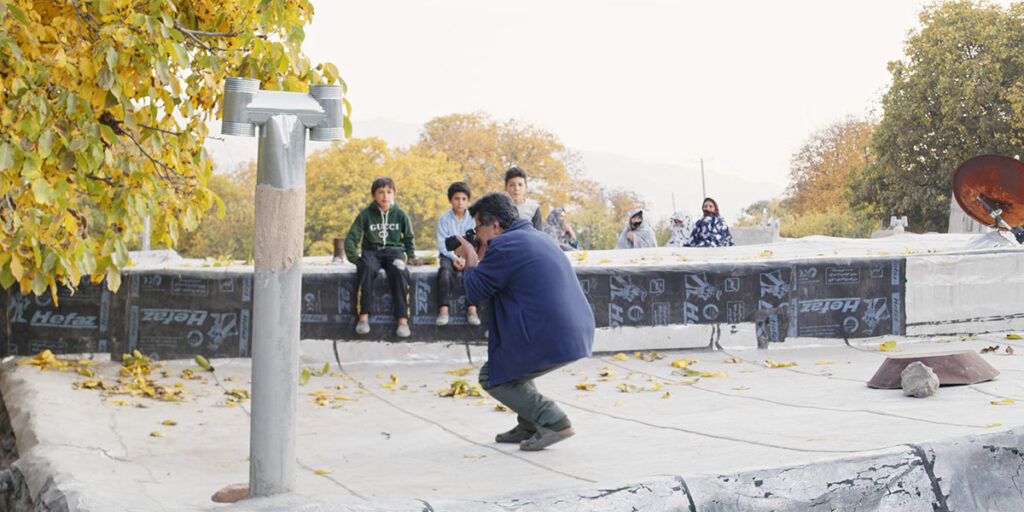No Bears (Khers Nist) is a film that, much like director Jafar Panahi, is committed to telling stories of truth and showing the raw, emotional side to living in fear.
Winning the ‘Special Jury Prize’ at the Venice Film Festival is quite something, and the recipient of that honour this year was Jafar Panahi’s No Bears (Khers Nist). It’s a considerable achievement, especially from the currently imprisoned director who, in 2010, was banned from filmmaking for 20 years by the Iranian government.
With its film-within-a-film premise, No Bears is telling three stories concurrently, two of which are tangibly linked, and the other linked thematically. It’s a film that blurs the lines between fact and fiction, with Panahi himself taking the role of ‘filmmaker’, the maestro overseeing the filming of Zara (Mina Kavani) and Bakhtiyar’s (Bakhtiyar Panjeei) attempts to flee Iran. He himself has fled to a remote village near the Turkish border – despite explicit instructions not to consider crossing it – and delivers his direction through a spotty skype connection. Almost against his will, he’s drawn into the idiosyncrasies of village life around him as he works. In particular, that of Gozbal (Darya Alei) and Soldooz’s burgeoning romance (Amid Davari), which is causing a stir as he is decidedly not the man she is being pressured into marrying.
There’s an urgency to Pahani’s filmmaking, with the camera ducking around people and often lingering back from what is most exciting within the shot. Stemming from the fact that No Bears was completed in secret, smuggled out of the country and showcased at Venice 79 with brave defiance, it also feels like a natural choice within the film itself. As an outsider to the village, it makes sense that Panahi’s filmmaker would be at a remove from the action, and the most we see of the cultural goings-on is when the camera is borrowed by his host Ghanbar (Vahid Mobaseri), or when a group of village elders come by to question Pahani about a photograph.
It’s a set-up that feels somehow between worlds; a step away from the (albeit staged) bustle of the city, rural but still busy and full of life. But the village is also a place of fear, where young couples face severe consequences for daring to connect, and the eyes of those smuggling things over the border are always watching. And that sense of dread doesn’t particularly ease in the city either. Zara has suffered tremendously at the behest of the state, and her grief over the unlikeliness of a successful escape attempt feels raw and real. Kavani’s performance is perhaps the best in the film, and it’s a poignant encapsulation of the struggle women in her position feel daily, as they deal with their trauma and desperately wish for the chance at a new, safer, freer life.
The blurring of fact and fiction gives the film a documentary-like nature, and Panahi’s fear as he finds himself standing directly on the border to Turkey feels like an unscripted moment captured by the camera. It gives the film urgency and agency, and Panahi’s real life jail sentence feels like a consequence that could be shown within the film and not feel out of place. It’s a powerful, brave piece of filmmaking from a director who is willing to push boundaries to produce impactful, important art.
No Bears is a film that, much like its director, is committed to amplifying the voices of the silenced and telling stories of truth. It shows how life is in Iran for those who don’t conform to the system, traditions or expectations. And while there are no bears in Khers Nist, there’s still plenty to fear. Panahi’s film doesn’t shy away from that fact, but doesn’t cower to it either. Much like the man himself.
No Bears (Khers Nist) premiered at the 2022 Venice Film Festival, where it won the Special Jury Prize. The film will be released in cinemas in the Uk on November 11, 2022.

